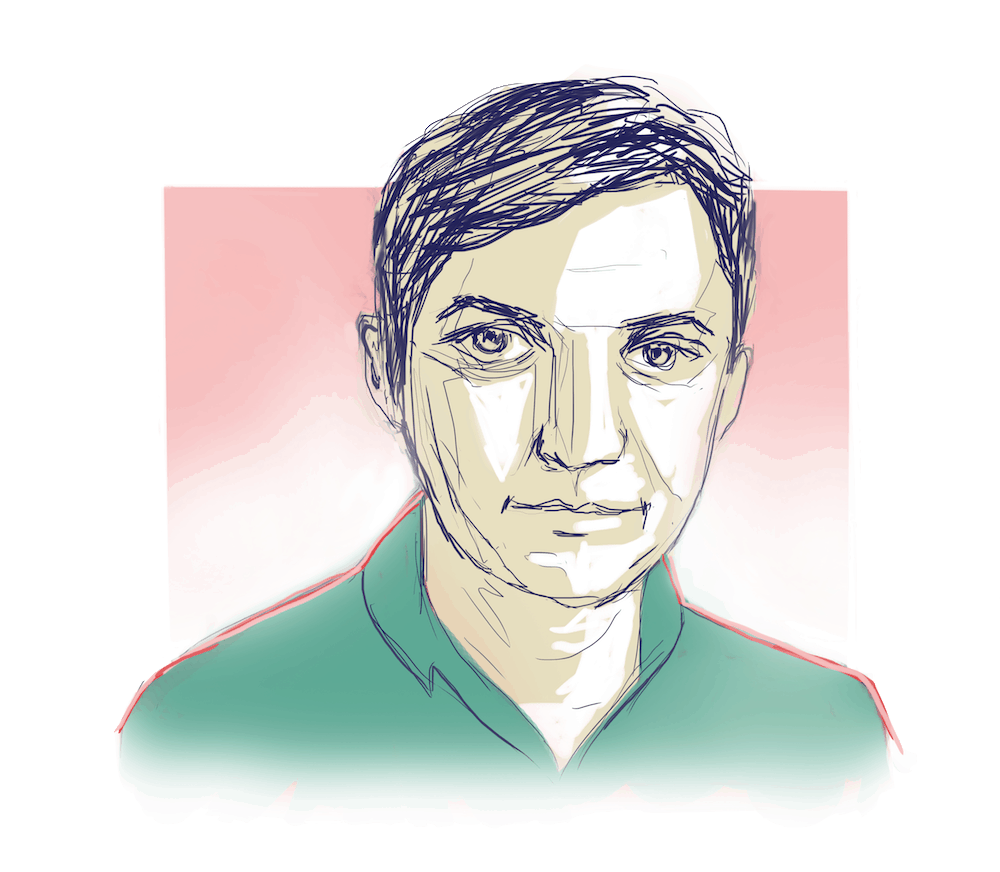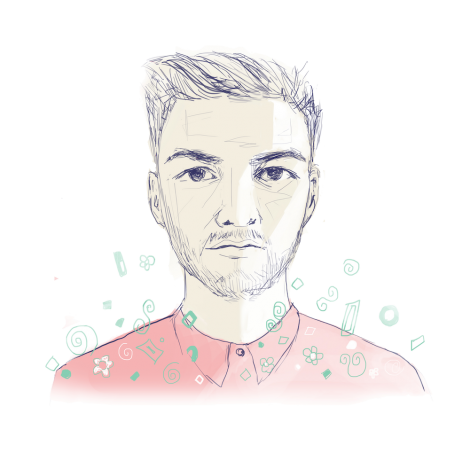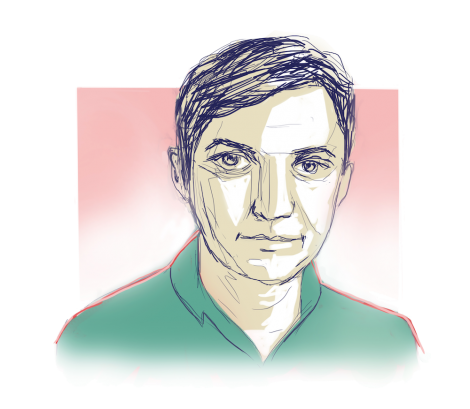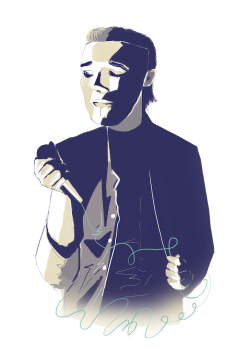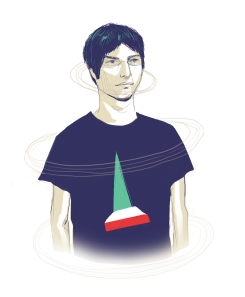In an age of self-expression, where many of us treat access to the web as an informal go-ahead for the title of part-time critic, audiences have more power than ever to share opinions on the culture they consume. But it’s still not common for fans to engage with an artist’s work on its own terms. There is a certain expectation that artists will lead the way by distinguishing their work within today’s morass of digital channels. Fan validation is still a crucial component for artists seeking meaningful exposure, especially since record labels are no longer the ultimate arbiters of good taste, at least not to the same degree that they were a decade ago. Spectators are now the ones who sort through what’s available, tying the success of every artist to their subjective tastes. For this reason, it’s worth re-examining the relationship between artists and their audience. How does this new distribution of power affect the role of dialogue between an artist and their audience? We took our queries about this new transparency to a few tastemakers who are exposed to audience interaction on a daily basis. Our panel includes two Toronto musicians, Digits (Alt Altman) and Kontravoid (Cam Findlay), Vienna-based photographer Klaus Pichler, and London instrumentalist/producer, Urulu (Taylor Freels).
Social platforms and digital platforms are an obvious point of intersection for artists and fans. We asked the artists about the role these conduits of connection play in their careers:
DIGITS
Social media is absolutely essential to everything I do, every single day, every hour of every day even. It’s how I’m able to reach the people that listen to me and how I’m able to promote anything that might happen.
KONTRAVOID
As an artist starting off, it’s pretty crucial… Putting music online in the past five to six years has given new artists the upper hand — they have their music out there for people to listen to. Essentially, what new musicians want to do is have their music be heard, attract a fan base immediately, start playing shows, and get on with their project. And as soon as you pick up a fan base, it directs your project. At least from my experience, it’s a good insight into who’s listening to your music and where they’re coming from.
KLAUS PICHLER
In the beginning social media played a very important role in my career, since Facebook was a great tool to get an overview of who was active in the photo scene, and what the most important platforms were. I used it less to promote myself, and more to get an overview of online discussions that would help me start my career as an exhibiting artist.
URULU
I would say that it’s almost as important as the musical process itself. About 40 per cent of what I do is devoted to actual studio time, and 60 per cent is used for networking, promotion, etc. The music industry is a game played through both spectrums.
—
Although its’ now an essential component for day-to-day business, it’s still not completely conceivable for an artist to tweet, blog, and profile their way to success. Our panel broke down their experiences interacting on various social networks.
DIGITS
Facebook is the most useful, but Facebook has recently introduced a lot of limitations in terms of how artists can reach their fans, so it’s not the best. Fewer people will receive your updates now and they’ve implemented a system by which you have to pay in order to ensure that all your fans see a given update. They’re just doing what they do. Facebook is still useful, but I feel like they could be a much better friend to artists. So the best way for me to reach my fans is actually still via email. If someone signs up for my email list, I find most people will see the updates, and most likely read them.
KONTRAVOID
Facebook is probably the main one I use for everything. I get the most responses from anything I post on Facebook. Instagram as well, if you’re documenting a tour for example or a recording session, that’s very strong too, and it’s fairly new. For me, Twitter’s not very responsive. I don’t post things every single day; I try to only do posts when it’s relevant.
KLAUS PICHLER
In my case, Facebook was the tool of choice. There are definitely other platforms, like LinkedIn, Twitter, Google+, that have their own communities and also their own rules, their own pros and cons. Facebook works best for me with its mixture of profiles, fan pages, groups, and the opportunity to promote events. One aspect I dislike about Facebook is its strange copyright and privacy rules when it comes to sharing pictures. Something which is characteristic of social networks… is the economy of attention. The one who screams the loudest wins, it doesn’t matter if the quality of his or her work is high or low, either way this person gets attention.
URULU
It’s all strategy I guess. I would say Facebook gives the most reach, while Twitter is kind of the informal step-child for belting out random thoughts. SoundCloud is also a big one, but more geared towards streaming than the type of blog posts accustomed to Facebook or Twitter.
—
We often want a song or a piece of art to do something for us — it could be as simple as framing a previously meaningless object in a new light, or as therapeutic as a soundtrack for a heavy heart. But our interpretations can clash with an artist’s intentions. We wanted to know how these artists handle misinterpretation of their artistic goals, and if they feel a responsibility to direct the discourse around their work.
KONTRAVOID
People take music very personally and look at it their own way. Coming from a creator’s perspective, there are fans I see eye to eye with when talking about inspiration, and whatever else is behind my music. I just naturally feel a connection to other artists in the same realm I’m in, but in general, it’s out there for people to interpret on their own.
KLAUS PICHLER
If a discourse around your work is happening, it can be extremely thrilling to just listen in without actively taking part in it, because there is the opportunity for new aspects of your work to be discussed that you’ve never thought about… On the other hand, if you discover that a controversy is rising around your work and you feel the danger of it being misinterpreted on a large scale, you definitely have to enter the discourse and explain yourself and your project.
URULU
You kind of have to set people up with a story behind an EP or single first, sort of like holding their hand.
—
An audience’s fickleness can be a source of insecurity. Musicians no longer work through traditional gatekeepers like record labels to access a huge audience and a relatively stable incoming. Freelance work has become the norm for many photographers. However, this limitless potential can be both liberating and terrifying.
DIGITS
Artists are almost required now to have a different set of skills than they had before, and they’re expected to [have them] if they want to continue making music. I think this freedom is only good. Although, maybe now if a band that makes really good music doesn’t get it heard by anyone, it’s their own fault. But I don’t want to put it so harshly as that.
KLAUS PICHLER
These ‘opportunities’ you are talking about of course bring more freedom in terms of creating your own jobs … But at the same time, it brings a lack of security too. You have to steadily work on yourself and your career. Otherwise you will stand still and literally get overrun by a bunch of other people.
URULU
I’m no pop sensation, so it’s not like I have a massive label backing me, or a PR team. It’s just myself, my manager and a booking agency. The easiest way to think of it is that you get out what you put in. Everything is proportionate.
—
Growing up in a world of unlimited access, artists today can relate to fans who are experiencing a similar acceleration of awareness and consumption. Their dual role as consumers and creators helps bridge the gap between their output and their audience.
DIGITS
I made music in high school… The Internet was around, but it wasn’t the way it is today. So I wasn’t really being influenced by everything I could be. Later, when I started joining bands again, it was a whole different musical world and I thought, ‘I’m going to devour all music ever made,’ which I think is most people’s reaction to the availability of music on the Internet.
—
Yet this accelerated rate of consumption translates into singles that become old news in a week and art blogs copy and paste dozens of pictures each hour. An awareness of this reality shapes artists’ approaches.
KONTRAVOID
Stuff is out there to be discovered whenever people pick up on it. It’s always new to them, even if it’s a year since it’s been released. I feel there’s no real wave of anything anymore. Maybe a couple of years ago there was a wave of a certain kind of music, then six months later, another form of music would be popular. Now it’s all kind of meshed together and music isn’t really digested like that anymore. There’s no real scene that’s dominant. I put my debut album out in February of last year, and not really having anything prior to that, I knew that it was just going to be the starting point of my project. I went on tour with Crystal Castles in October and that’s where I got a lot of new fans, because it was all new to them. They need to be exposed to it, they need to have it in front of them.
URULU
I started off like I’m sure everyone else did, digging through blogs. I wasn’t old enough in the ’90s to even comprehend collecting vinyl, so I sort of missed that whole sweep. Although digital consumption isn’t always the most profitable outlet, it does however, correspond directly to touring. I guess, in theory, I could give every piece of music I’ve made out for free, and still be able to tour. I doubt this would be the same for a larger market, like pop music, but for house music specifically, people want to see you live after hearing your music online.
—
At the end of the day, dialogue with an audience is vital for an artist’s development, be it online or in person. Each artist relates differently to feedback, and creative decisions can be influenced by fans’ reactions. The choice is still ultimately theirs.
DIGITS
Playing live is amazing. You can take this very abstract interaction with people on social networks and email, and all of a sudden it’s their faces and you’re playing for them. It’s a great way to see how people react to new songs, just seeing what works, what might need a slight adjustment. If people are looking at their feet, shuffling, and they don’t know what to do, and they seem confused, that section probably isn’t good.
KONTRAVOID
I’m working on a second album and I don’t want to redo a lot of the stuff that’s in the first one, I want to build on it, that’s what I’m always looking to do. For example, for some of my tracks, people said ‘I can’t hear the lyrics, I don’t know what he’s saying.’ Some of them are muttered, a lot of them are run through effects, pedals, and so they’re not very audible because of the processing that goes on. So I kind of took that into account and a lot of the stuff I’m working on now has cleaner vocals and more audible lyrics. It’s not really messing with the theme necessarily, but there are certain elements you can always improve on. When I started this, I didn’t really think it would be pop music, for lack of a better term. There was the option to go more experimental so I did lots of vocal processing, so there’s a lot of noise and over-driven synths. But I find that when I look back at it, it’s like yeah, these tracks are structured in a pop format and people who listen to that music want to be able to hear what I’m saying and know what the lyrics are so they get stuck in their head[s].
KLAUS PICHLER
Making decisions is a very personal thing for me, and thinking about possible reactions is excluded 100 per cent — well, let’s say 95 per cent, because four per cent is the pleasant anticipation of how people will react to it. I do these [photo series] basically for myself, to satisfy my lust of creating something new, to renew my photography with every series. I will never stop working with this approach, since it would make me unhappy if I started producing art for someone other than myself.

